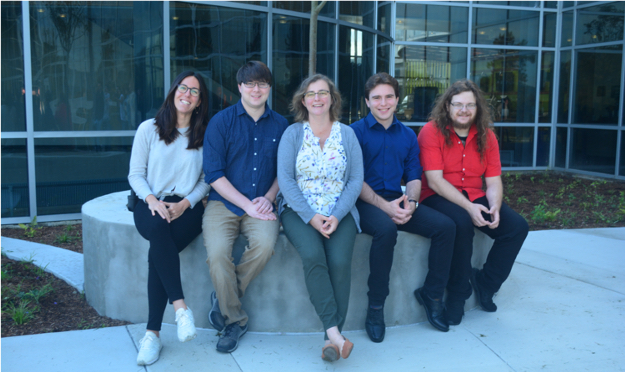- BIOFILMS
-

Our research focuses in how single and multi-species microbial biofilms interact with the host and are tolerant to antimicrobials.
Why Biofilms? Bacteria live mainly in a biofilm and not as it is most commonly thought as free floating individual cells. Biofilms are commonly associated with surfaces and are formed through physiological developmental stages. These communities, of different microbial species, present multiple phenotypes adapted to their immediate environment, including a sub-population of persister/dormant cells. This results in an increased antimicrobial resistance, persistence and improved growth in different environments, leading to biofouling and infections.
-

Recent publications Since January 2020 our lab has published 3 manuscripts (here)
Congratulations Grace Himmler for successfully defending her Honors Thesis and Graduating in the Spring 2020!!!!
Cody Hastings presented his work at the 2020 Binghamton University Biology Department Annual Symposium at Binghamton on January 17, 2020. His talk was entitled "Effect of human complement on Pseudomonas aeruginosa persister cells."
Alba García-Rodríguez presented her work at the 8th Sustainable Nanotechnology Organization Conference, November 2019. Her talk was entitled "Microbiota modulate the effects of food additive nanoparticles in an in vitro model of the gastrointestinal tract". Presentation at this conference was supported by a travel grant.
Cody Hastings presented his work at the ASM Microbe, July 2019. His talk was entitled "Effect of Human Complement on Persister Cells". Presentation at this conference was supported by a Binghamton University travel grant.
Jacob Tanzman presented his work at the ASM Microbe, July 2019. His Poster was entitled "Development of a Mock Upper Gastrointestinal Microbiome".
Congratulations Georgette Gordon for successfully completing her Honors Thesis and graduating in the Fall 2019!!!!


